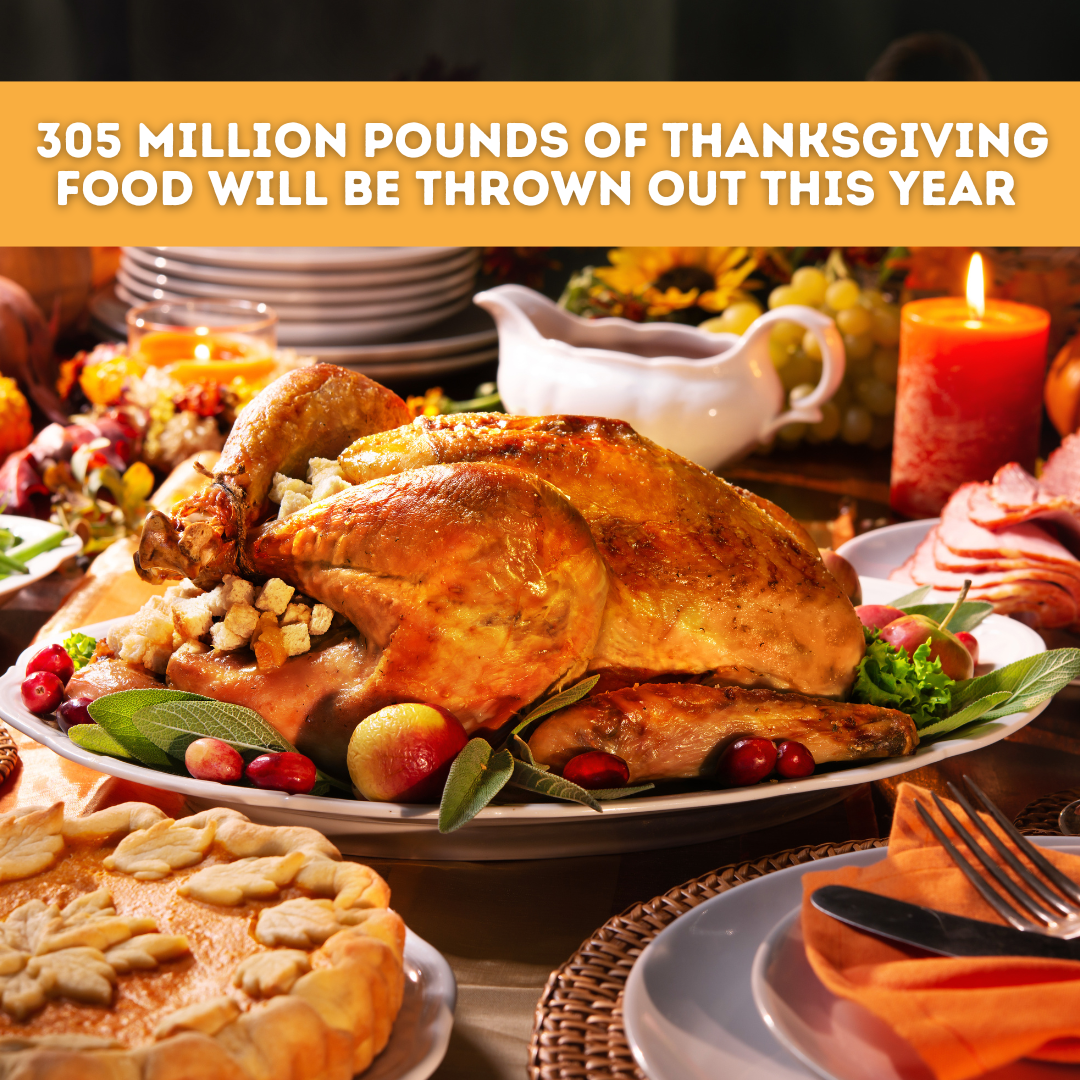NEWS
Rethink the Feast: How to Reduce Food Waste on Thanksgiving

Most Americans equate Thanksgiving with a feast fit for a king, with piles of delicious leftovers to be consumed in the days after the event. But the reality is this: it is estimated that 305 million pounds of food from Thanksgiving dinner will be thrown out this year. Overall, Thanksgiving food waste equates to million metric tons of greenhouse gas emissions, about the equivalent of driving 1.1 billion miles in a standard passenger vehicle. And it’s not just the waste, it’s also all the resources used to create the food that ends up in the trash—more than 1 billion gallons of water go into producing the food that is wasted each Thanksgiving.
You can still enjoy a festive holiday meal, without the waste. Consider the following tips to help reduce the amount of Thanksgiving food waste:
Plan Ahead: A key component of reducing overall food waste is simply planning ahead. Before you shop, create a list to prevent over-purchasing or impulse buys. While making your list, be sure to check your cabinets for items you might already have on hand. If you are coordinating dishes with multiple people, be sure to coordinate so you don’t overlap dishes. Also, consider simplifying your meal all together. Are multiple types of dinner rolls really necessary? Could you cut some of your side-dish recipes in half?
Consider Vegan/Vegetarian Dishes: While serving vegan or vegetarian dishes won’t necessarily result in less food waste, reducing the amount of meat you serve is more sustainable. Meat production is responsible for generating about 14.5% of total global greenhouse gas emissions and requires massive amounts of resources like water and land.
Repurpose or Compost Scraps: Save meat and vegetable food scraps for future cooking. You can freeze scraps and use them later (think: creating stock for delicious winter soups). Most importantly, don’t throw food scraps in the garbage. Check out our resources on composting at home, via the transfer station, or through a residential service here.
Take Your Leftovers Seriously: Take the time to properly store your leftovers in the fridge. Storing leftovers neatly in labeled containers will make them more likely to be eaten. Get creative with your post-Thanksgiving leftovers; try searching pinterest for thousands of ideas. If you don’t want to eat all your leftovers right away, try freezing them to enjoy later on.
Give Away Leftovers: You can also send leftovers home with your guests. Let them choose their favorite dishes so that it’s more likely they will eat – and enjoy – their leftovers!
Donate: If you have shelf stable food items you don’t end up using, consider donating to a food rescue organization or food pantry near you.
Why Should You Care About Food Waste?
There are many good reasons to avoid wasting food.
Saves Money: No one likes throwing away money. It is estimated that 25% of municipal solid waste is food. That is one in four bags of groceries – IN THE TRASH!
Saves Resources: Wasted food wastes the water, gasoline, energy, labor, pesticides, land, and fertilizers used to make the food. When we throw food in the trash, we’re throwing away all the resources used to produce it, too.
Reduces methane from landfills: When food goes to the landfill, the nutrients in the food never return to the soil. The wasted food rots in the landfill and produces methane gas. Methane is a strong greenhouse gas with more than 21 times the global warming potential compared to carbon dioxide. Composting, on the other hand, ensures that 100% of your food waste is successfully recycled into nutrient-rich soil.